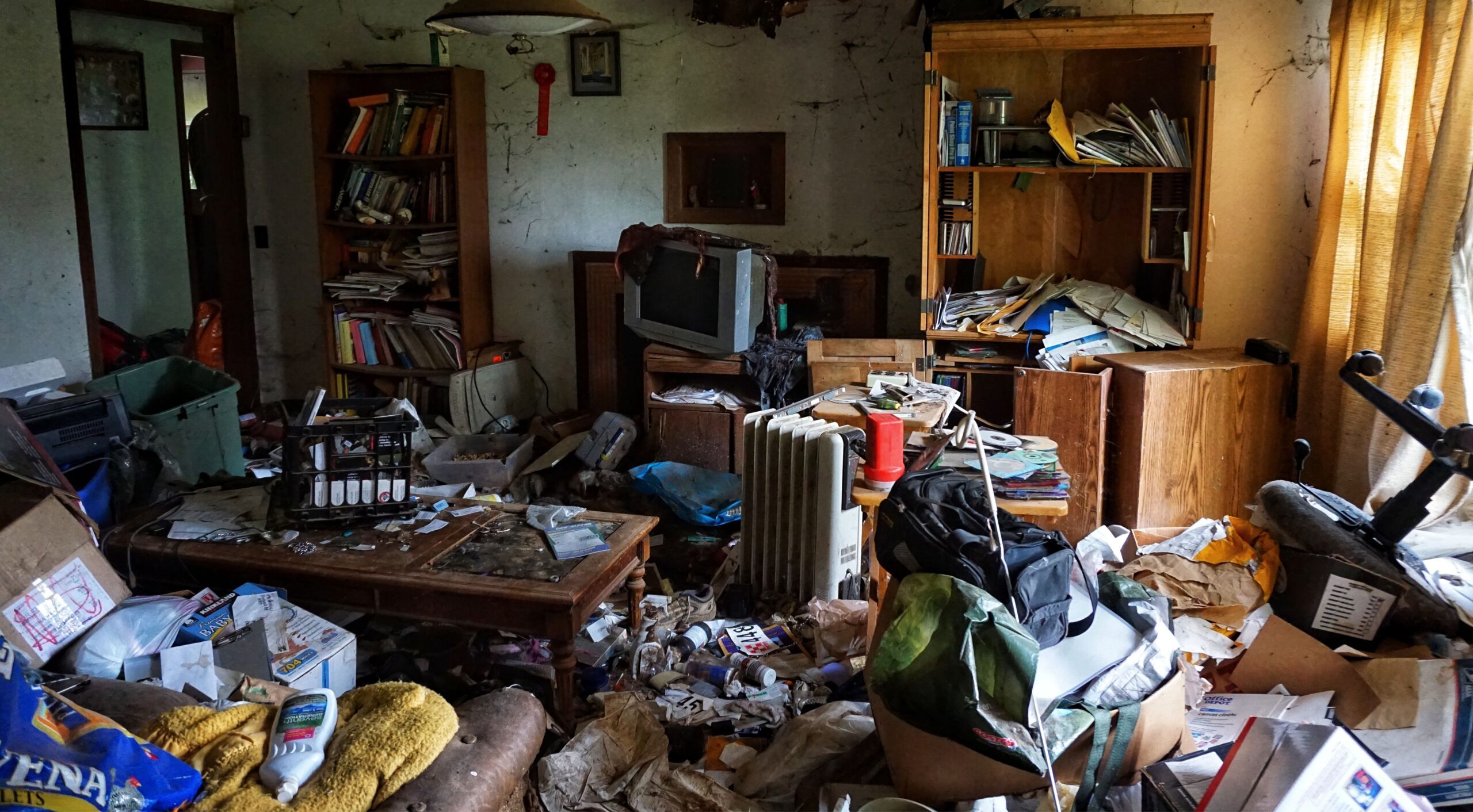A Comprehensive Guide to Tenant Abandonment in Ontario: What Landlords Need to Know
In Ontario, landlords are sometimes faced with the challenging situation of a tenant abandoning a rental unit. Tenant abandonment occurs when a tenant leaves the rental property without informing the landlord, often without paying rent or fulfilling the lease obligations. This can leave landlords in a difficult position, unsure of how to handle the vacant property, any belongings left behind, or the process of recovering unpaid rent.
This comprehensive guide will explain what tenant abandonment is, how to identify it, the steps landlords should take, and the legal considerations involved in Ontario under the Residential Tenancies Act (RTA).
What is Tenant Abandonment?
Tenant abandonment occurs when a tenant vacates the rental unit without giving proper notice to the landlord and without any intention to return. This often happens suddenly, and in many cases, the tenant leaves behind unpaid rent, personal belongings, and no clear indication of their whereabouts.
There are different reasons a tenant might abandon a rental unit, including financial difficulties, relationship changes, or disputes with the landlord. Regardless of the reason, abandonment creates legal and practical challenges for landlords who need to secure the property, handle any belongings left behind, and address rent arrears.
How to Identify Tenant Abandonment
Before taking action, it’s crucial for landlords to confirm that a rental unit has indeed been abandoned. Prematurely assuming abandonment can lead to legal issues if the tenant has not actually vacated the property. The following signs may indicate tenant abandonment:
1. Unpaid Rent and Lack of Communication
- If a tenant has missed one or more rent payments and has stopped communicating with the landlord, this could be a sign of abandonment.
2. Personal Belongings Removed
- If you observe that most or all of the tenant’s personal belongings have been removed from the unit, it’s a strong indicator that the tenant does not plan to return.
3. No Utilities Usage
- Checking the usage of utilities such as electricity, water, or gas can provide clues. No utility consumption over an extended period can suggest that the tenant has vacated the premises.
4. Tenant Hasn’t Been Seen
- If neighbors, other tenants, or the landlord have not seen the tenant for an extended period and there are no signs of occupancy, the unit may have been abandoned.
5. Mail Piling Up
- If there is uncollected mail piling up at the door, or if the tenant has requested a forwarding address from the postal service, it could be a sign that they’ve left for good.
Steps Landlords Should Take When a Tenant Abandons a Rental Unit
If you suspect a tenant has abandoned the rental unit, it’s important to take the appropriate steps to protect your rights as a landlord and comply with Ontario’s Residential Tenancies Act (RTA).
1. Confirm Abandonment
- Investigate thoroughly before assuming abandonment. This might include:
- Contacting the tenant by phone, email, or in writing to confirm whether they intend to return.
- Speaking to neighbors or other tenants to gather information about the tenant’s whereabouts.
- Be cautious and avoid entering the unit without confirming abandonment unless there are signs of an emergency (e.g., a water leak or fire hazard).
2. Serve a Notice of Entry
- If you’re uncertain whether the unit has been abandoned, you can issue a 24-hour Notice of Entry to inspect the unit, as allowed under the RTA. You can enter the unit to inspect it if you’ve given this notice, and this may provide further clues as to whether the tenant has abandoned the unit.
3. Address Rent Arrears
- Even if the tenant has abandoned the unit, they are still responsible for paying rent for the duration of the lease or until the tenancy is legally terminated. To recover unpaid rent, you can:
- Serve a Form N4: Notice to End a Tenancy Early for Non-Payment of Rent to formally demand payment. This provides the tenant with 14 days to pay the overdue rent or move out.
- If the tenant does not respond, you can file a Form L1: Application to Evict a Tenant for Non-Payment of Rent to the Landlord and Tenant Board (LTB) to legally end the tenancy and recover the unpaid rent.
- Alternatively, you may choose to file Form L9: Application to Collect Rent the Tenant Owes if you don’t want to evict the tenant but simply recover the rent owed.
4. Repossess the Unit
- If the tenant does not respond to your communication or pay the rent, you may eventually need to apply to the LTB to legally regain possession of the rental unit. This is done by filing Form L2: Application to End a Tenancy and Evict a Tenant.
If the unit is clearly abandoned and you are confident the tenant has no intention of returning, you may need to file an application to terminate the lease based on abandonment (often included under Form L2).
5. Handling Tenant’s Belongings
- If the tenant has left behind personal belongings, landlords must follow the rules under the RTA before disposing of them. Specifically:
- If you believe the tenant has abandoned the unit, you can apply to the LTB for an order of abandonment. This confirms that the tenancy has ended, allowing you to legally deal with the tenant’s property.
- After receiving an abandonment order, you may either store the tenant’s belongings for 30 days or dispose of them as per LTB directions.
- If the tenant has left behind items of value (e.g., furniture, electronics), you must store them for a minimum of 30 days. After this period, if the tenant hasn’t claimed their belongings, you can dispose of or sell them.
6. Mitigate Losses
- Under the RTA, landlords are required to take reasonable steps to mitigate losses after tenant abandonment. This means actively attempting to find a new tenant to replace the one who abandoned the unit. You cannot leave the unit vacant and charge the tenant for the entire lease period if you have not tried to re-rent the property.
Legal Considerations and Obligations Under the Residential Tenancies Act (RTA)
When dealing with tenant abandonment, landlords must comply with the Residential Tenancies Act (RTA), which outlines specific rules and obligations.
1. Don’t Assume Abandonment
- Prematurely assuming that a tenant has abandoned the property can lead to legal issues, especially if the tenant has not actually vacated the unit. Always ensure there is clear evidence of abandonment before taking action.
2. Follow Proper Legal Processes
- Landlords cannot simply take possession of the unit or dispose of belongings without following the LTB’s process for confirming abandonment. This ensures that tenants’ rights are protected and that landlords avoid penalties or legal disputes.
3. Recovering Rent Arrears
- Even if the tenant has abandoned the property, they remain liable for the rent until the lease is legally terminated. Landlords can file for rent arrears with the LTB to recover unpaid rent.
4. Return of Keys
- Ensure that any keys, fobs, or access cards provided to the tenant are returned. If they are not returned, you may need to change the locks for security purposes, especially if the tenant has vacated without proper notice.
5. Avoid “Self-Help” Evictions
- Landlords should avoid self-help evictions (changing the locks or removing belongings without a formal order). Doing so can lead to significant legal repercussions, including fines and tenant compensation claims.
What Landlords Should Avoid When Dealing with Tenant Abandonment
1. Do Not Enter the Unit Without Following the Legal Process
- Entering the rental unit without notice or legal authority can be considered a violation of the tenant’s rights under the RTA. Make sure to issue a notice of entry or apply for an abandonment order before entering the unit.
2. Don’t Dispose of Belongings Prematurely
- Even if the tenant’s belongings seem of little value, you are required to store them for 30 days before disposing of or selling them. Failing to follow these rules can result in legal claims against you.
3. Avoid Making Assumptions
- Sometimes tenants may temporarily leave the unit (e.g., for vacation or personal reasons) and might still plan to return. Always make efforts to confirm abandonment before taking any action, including contacting the tenant and investigating the situation thoroughly.
Navigating Tenant Abandonment in Ontario
Dealing with tenant abandonment in Ontario can be challenging, but following the correct legal process ensures that landlords protect their rights while complying with the Residential Tenancies Act (RTA). Confirming abandonment, addressing rent arrears, handling tenant belongings, and following legal steps with the Landlord and Tenant Board (LTB) are all essential parts of managing an abandoned rental unit effectively.
By taking the appropriate steps and avoiding premature actions, landlords can mitigate their financial losses, recover unpaid rent, and quickly return the unit to rentable condition. If you are uncertain about how to proceed or need legal advice, consulting with a paralegal or lawyer experienced in landlord-tenant matters can help ensure that you follow the law and protect your interests.


